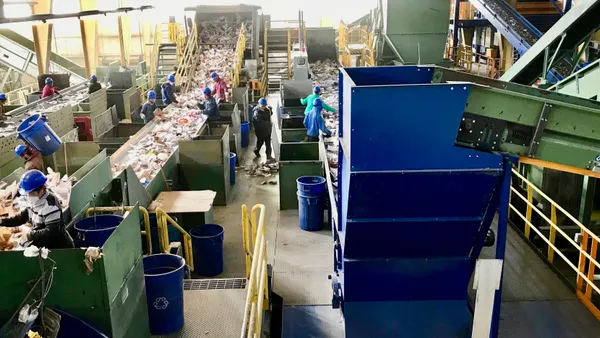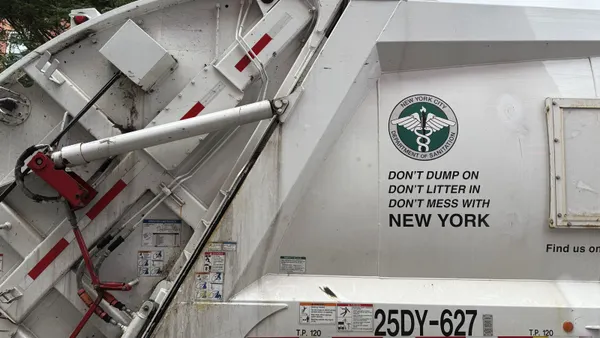Dive Brief:
- Global coffee chain Starbucks announced this week it is joining with Closed Loop Partners (CLP) in a "moon shot for sustainability" and working to develop fully recyclable and compostable cups. Starbucks is committing $10 million for CLP's Center for the Circular Economy to establish a "NextGen Cup Challenge." Entrepreneurs developing ideas that could lead to what the company calls "more sustainable cup solutions" will be given grant money.
- Starbucks says it has a 3-year ambition for the project and that solution development will be open source "so others can benefit and innovate on the path towards the development of recyclable and compostable cups around the world." During the NextGen Cup Challenge, Starbucks' internal R&D team is continuing to test cups with a bio-liner made from "partially" plant-based material. The company says the trial is expected to last 6 months.
- The company is also calling for broader standardization across the country, in terms of what material is and is not recyclable in different regions. Starbucks is also partnering with the National League of Cities to advocate for "model legislation and best practices to make access more widely available."
Dive Insight:
Bridget Croke, CLP's VP of external affairs, told Waste Dive the team will be working on how to best allocate the grant money in the coming weeks, in order to work toward commercial applications. "The goal is to work with CLP so we could hopefully then invest in solutions to help drive scale and help the solution providers understand how to ensure [a cup] gets through the recovery system," she wrote.
With this announcement, Starbucks joins other major companies, including McDonald's, Dunkin' Donuts and Coca-Cola, that have made pledges and announced initiatives to cut down on waste and make their supply chains more sustainable. Cutting down on the amount of virgin raw material used can save on manufacturing costs and can also boost consumers' views of companies as sustainability continues to be in vogue.
Coffee cups, because of their ubiquity as well as their composition, can pose a particular challenge for municipal waste operations. Separating the resin liners from the paper cups can be difficult and, as noted by Starbucks, not everywhere across the U.S. has equal access to infrastructure that can properly recycle two-component coffee cups. As a result, they often end up being disposed — whether because they were purposely thrown out or, in some cases, because they contaminated recycling loads.
And, while Starbucks is making some progress, investing advocacy group As You Sow said it will present the company with a shareholders' resolution asking for a report on plastic waste, and for the phasing out of single-use plastic straws.
Veolia, a British company, is specifically targeting coffee cup recycling in the United Kingdom, where a survey showed many coffee drinkers throw their takeaway cups out at work. The U.K. is already considering a tax on single-use coffee cups in an attempt to cut down on waste and encourage reusable cups.
As cities around the U.S. tighten their rules for commercial recycling collection, this could be less of an issue domestically. This is especially true as municipalities, some quite large, expand their recycling programs, with more starting to accept paper coffee cups.








